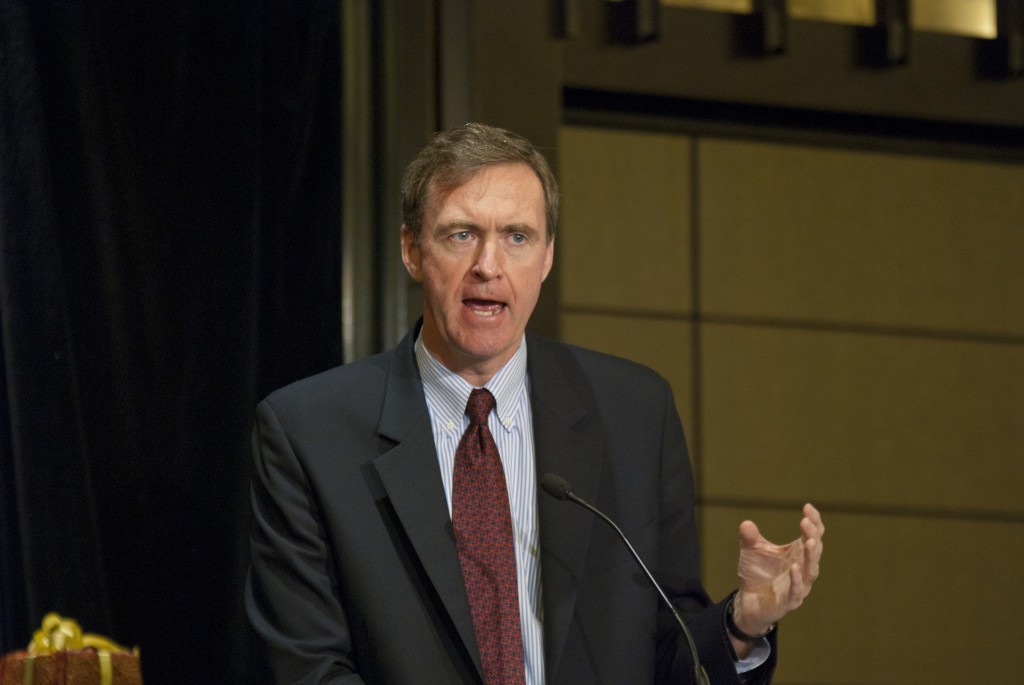
Mission statements are not enough, only embodied values make Catholic health care worthwhile, former managing director of a US based international investment giant told Australian Catholic health care professionals on Monday, August 20.
Speaking to around 380 delegates from Australia, Singapore and New Zealand, Chris Lowney, Trustee of the US-based Catholic Health Initiatives, said he had looked at the values listed on Australian Catholic health care websites in preparing for his leadership talk:
“Words like compassion, excellence, respect [appear] time and time again … and kudos to boards and management teams … but both you and I know that laying words like that out there becomes hollow if we can’t get 35,000 people who work in Catholic health care to stand-up and role model those values,” Mr Lowney told delegates.
St John of God’s new Midland hospitals would have a specific balance sheet value but their true value was in the way they operated.
“We all know that what is going to make the building valuable at the end of the day is how the people who walk into it behave.
“If [staff] are role modelling the values you care about then that building is going to be a fabulous success and if they are not, the building is going to be a big waste of money.”
Chris Lowney’s comments were part of a wide-ranging talk, Leading for a new age, in which the one-time Jesuit seminarian talked about the kind of leadership necessary for economic and moral success amid uncertainty.
He was the first in a heavy-hitting line-up of speakers over the Leading the Way conference’s three days, including Youth Off the Streets founder, Fr Chris Riley, the National Disability Insurance Scheme’s John Della Bosca, and 2005 Australian of the Year, Fiona Wood.
In a post-talk question and answer forum, Mr Lowney said the strong desire for self-awareness exhibited by staff of different and no religious backgrounds, often related to the “ultimate questions” propounded by the great faiths.
Referring to the Ignatian heritage of his seminary days, he suggested people take a moment of reflection during the day to focus on ultimate priorities, to re-orient busyness toward the most important things.
The Catholic faith contained much human wisdom which could be shared with others without them feeling that they had been proselytised, he said.
At a time when aging Religious Orders are bequeathing hospitals to wholly lay administrations, Catholic health care leaders need to stay connected with the legacy of their forebears if they want to continue to provide compassionate and respectful care.
Their predecessors’ success could not simply be put down to self-actualisation and rigour.
“It wasn’t only a matter of “I’m self-aware and I’m willing to be part of a team that’s bigger than me”. That only gets you so far.
“And this to me is our real challenge: in a group of diverse and noble religious backgrounds, how can we help people confront or go to these great questions.”
Catholic Health Australia member organisations operate 75 health care and 550 residential care facilities throughout Australia, representing around 10 percent of the health care sector.
CHA’s Leading the Way conference concludes on Wednesday.